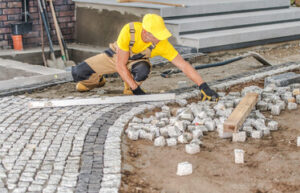Concrete Contractors are responsible for installing and repairing concrete structures in homes, businesses, roads, and other areas. The job requires strong technical and business skills. They must balance job site experience with office management knowledge to be efficient in their business. This means navigating the often complicated hiring, accounting, estimating, and bidding process.
 A concrete contractor is licensed to pour concrete on building projects, such as roads and sidewalks. Concrete Contractors Dallas TX use analytical and creative skills to help them deliver successful, high-quality projects.
A concrete contractor is licensed to pour concrete on building projects, such as roads and sidewalks. Concrete Contractors Dallas TX use analytical and creative skills to help them deliver successful, high-quality projects.
Depending on where they work, concrete contractors can focus on residential projects or commercial projects, such as public works and schools. This is because the tools, expertise, and skills needed are different in these fields.
In addition to a license, concrete contractors need to have two to four years of experience in the industry and be financially solvent. This is typically achieved by putting money aside in a bond.
Concrete Contractors need to have a good deal of experience to be successful in their work. This is because concrete construction requires a lot of work on the jobsite and the ability to finish projects quickly and efficiently.
Moreover, they need to know how to use equipment properly and ensure safety while working. They should also be able to read blueprints and follow written instructions.
It’s also important to consider how a concrete contractor interacts with clients. It could be a sign that they aren’t dedicated to their work if they seem standoffish or hesitant to answer your questions.
Whether you work on commercial or residential projects, you need a concrete license to perform your work legally. These licenses vary from state to state and are typically required by a local licensing authority.
Some states require concrete contractors to obtain a separate license, while others include the work with the general contractor’s license. Regardless of the license you obtain, you’ll also need to carry insurance.
The licenses you need as a concrete contractor can be obtained by applying for them through your state’s licensing authority. They typically require you to be at least 18 years old, have a few years of experience working with concrete, and pass a written test. You may also be required to put money into a bond.
Concrete Contractors need to have the proper insurance coverage. This includes general liability and workers’ compensation insurance.
Workers’ compensation protects employees who are injured on the job, including the costs of medical care and lost wages. It also offers protection against lawsuits.
Errors and omissions (E&O) insurance, also called professional liability insurance, can help concrete contractors if a client sues them for allegedly failing to deliver quality work or missing deadlines.
Inland marine insurance is another important concrete contractor insurance policy that provides financial protection for construction equipment and tools that are not permanently attached to a vehicle. It can be purchased as an addition to a business owner’s policy (BOP).
Every state has its own rules and regulations for licensing contractors. The qualifications for a license vary from state to state, but they usually include at least being 18 years old and having a few years of experience.
In addition to a contractor license, Concrete Contractors may also need a sales tax permit (an employer identification number or business ID number). This creates an account number with the state’s Department of Revenue to collect and remit sales tax.
Before starting a concrete business, decide what type of work you will be doing and which region your company will operate in. This will help you choose the appropriate permits and licenses for your business. It can also help you decide on a location for your concrete business.
Concrete contractors are professionals who specialize in installing and repairing concrete structures. Concrete is a durable and versatile building material used in various construction projects, from building foundations and driveways to sidewalks and retaining walls. Concrete contractors have the expertise and equipment to pour and finish concrete to meet specific project requirements. They may also provide concrete repair and maintenance services, including crack filling, leveling, and sealing. In addition to traditional concrete, some contractors may also work with decorative concrete, such as stamped or stained concrete, which can create unique and attractive finishes for outdoor surfaces. Hiring a professional concrete contractor can help ensure that concrete projects are completed safely, efficiently, and to the highest standards of quality.